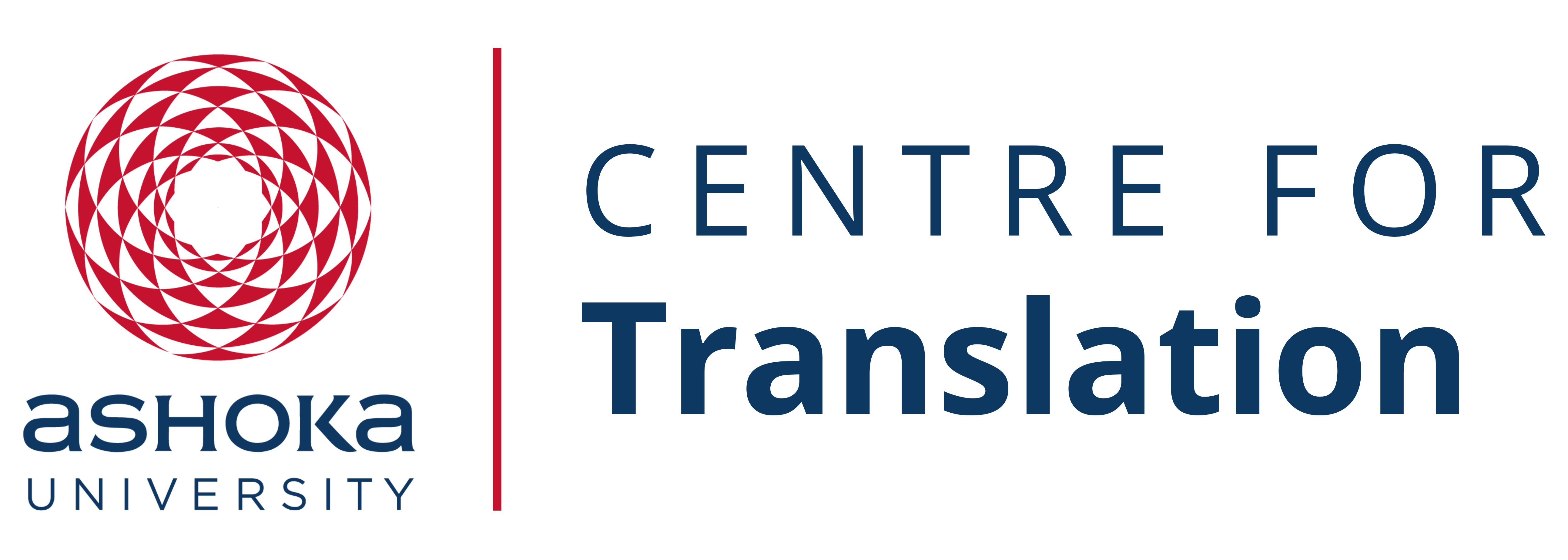Select Events Archive
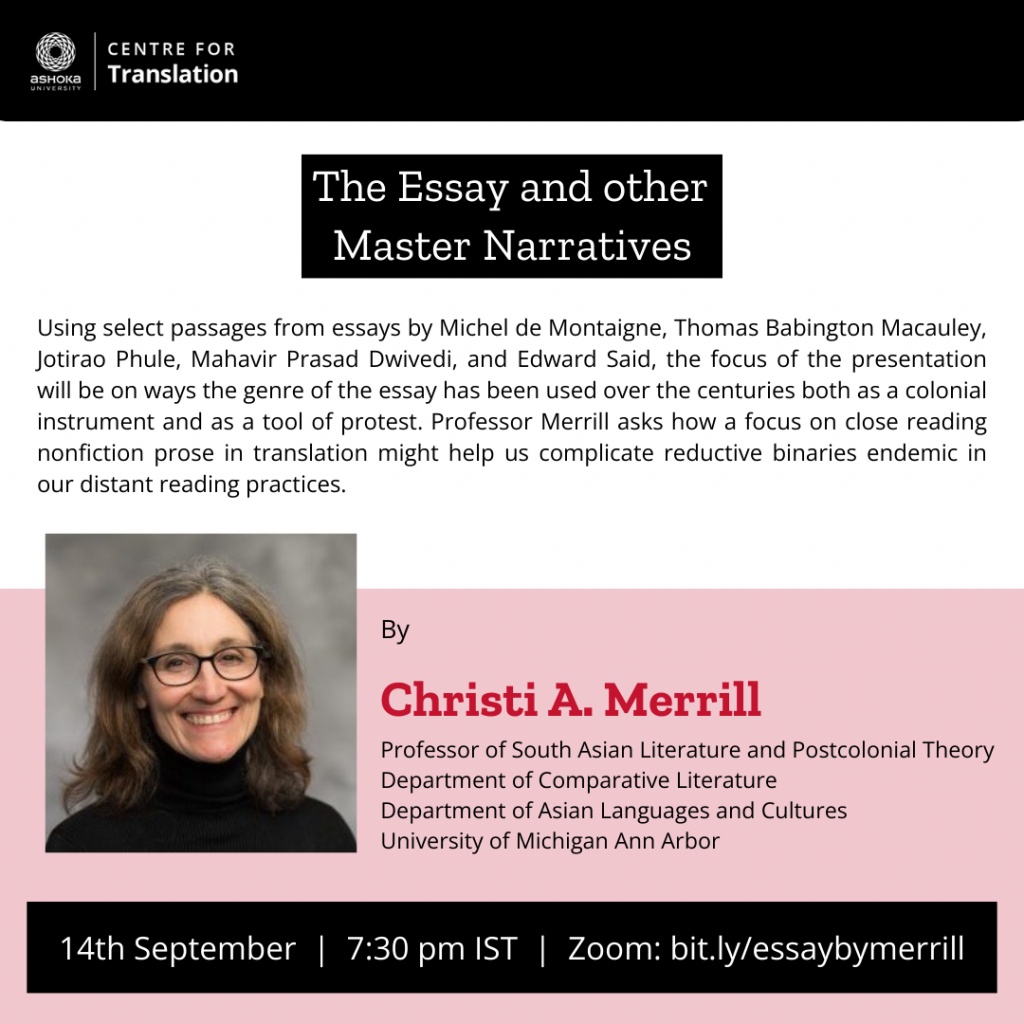
The Essay and other Master Narratives
In this special lecture on the genre of the essay, Professor Christi A. Merrill discusses select passages from essays by Michel de Montaigne, Thomas Babington Macauley, Jotirao Phule, Mahavir Prasad Dwivedi, and Edward Said, in order to bring together ideas from two different chapters of her book project, Genres of Real Life: Mediating Stories of Injustice Across Languages.
She focuses on ways the genre of the essay has been used over the centuries both as a colonial instrument (for example, to condone institutions of slavery) and as a tool of protest (not only against slavery but also against caste.)
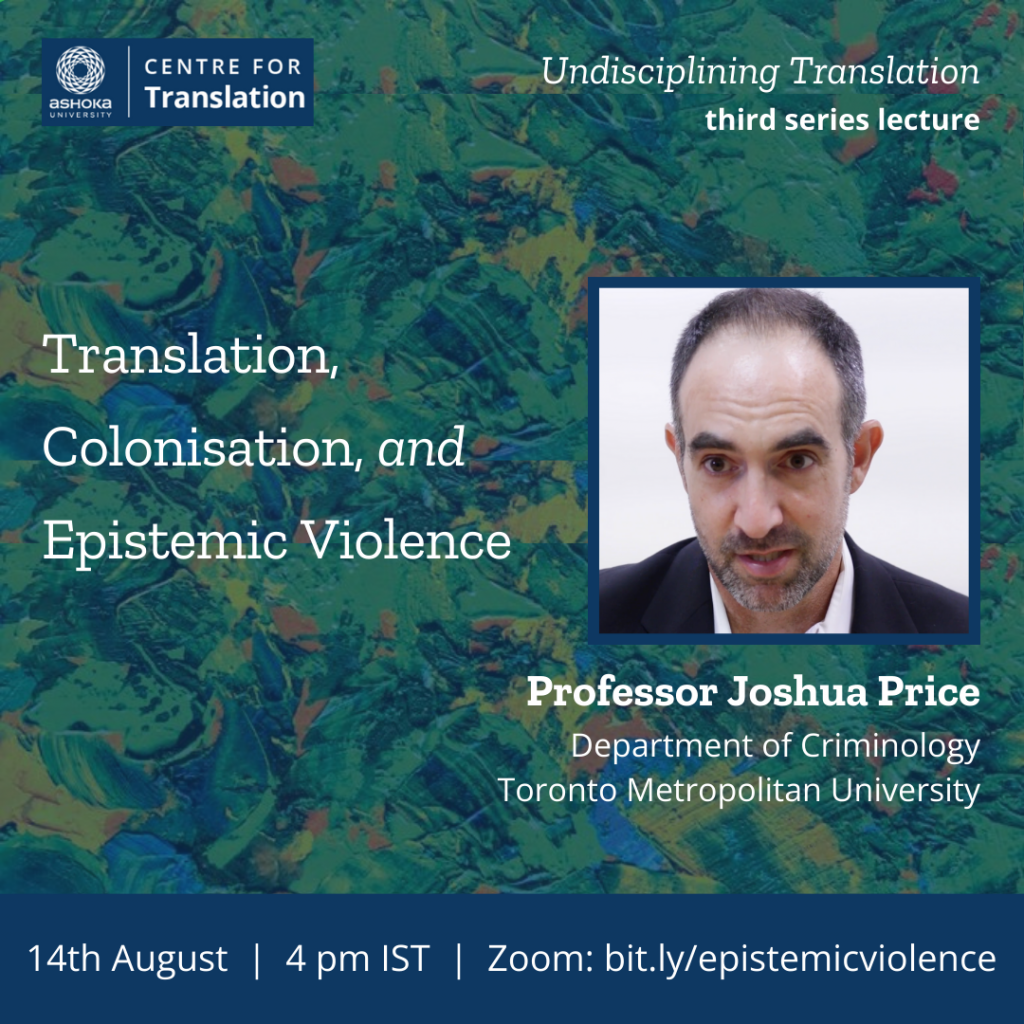
Translation, Colonisation, and Epistemic Violence
In the third Undisciplining Translation series lecture, following his book Translation and Epistemicide: Racialization of Languages in the Americas, Professor Joshua Price comments on how through the centuries, translation practices have enabled colonialism and resulted in epistemicide, or the destruction of indigenous and subaltern knowledge, by marginalising and criminalising translators and interpreters. The lecture also highlights how translation has been used as a decolonial method by subaltern translators and interpreters.
The Undisciplining Translation lecture series aims to engage with translation by un-disciplining it—by investigating it across disciplines and beyond disciplining acts.
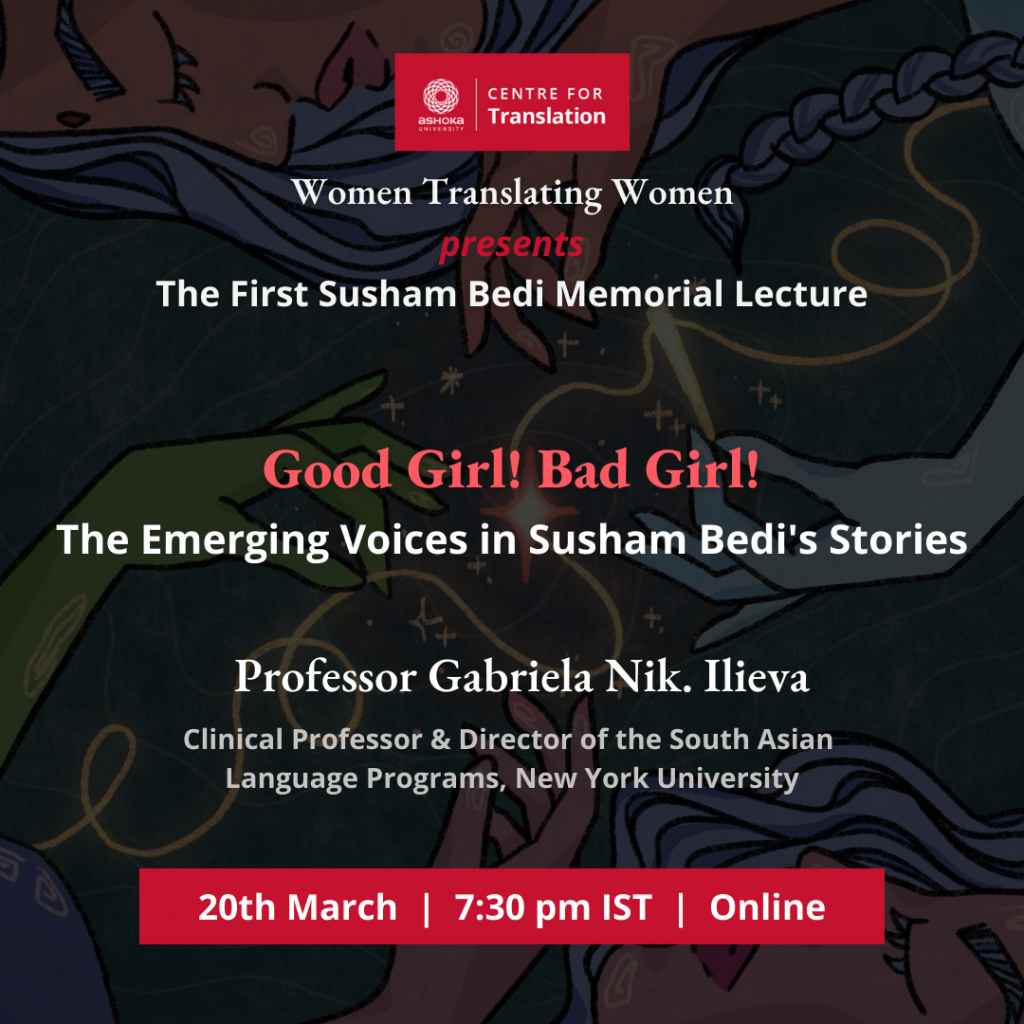
The First Susham Bedi Memorial Lecture
The First Susham Bedi Memorial Lecture was delivered by Professor Gabriela Nik. Ilieva to mark the third anniversary of the passing of the Hindi poet and author Susham Bedi on 20th March 2023.
Honouring Bedi’s life through a critical appreciation of her work, the lecture attempts to highlight how Bedi’s characters embody the varying dynamics of acculturation — integration, assimilation, separation, and marginalisation — constructed as fluctuating and complex in which she unpacks the female identity as an added salient aspect and dimension.
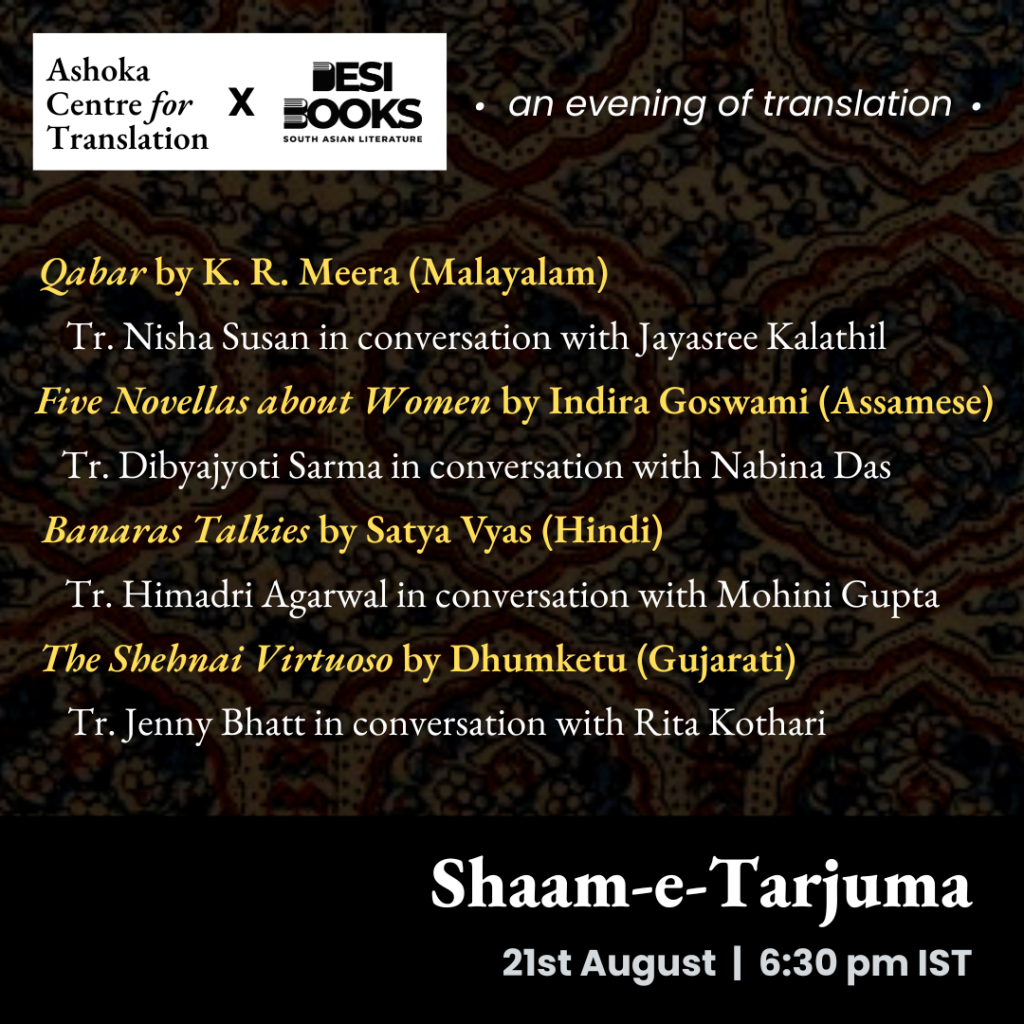
Shaam-e-Tarjuma
We collaborated with Desi Books to celebrate an evening of translation, Shaam-e-Tarjuma, which featured selected narratives across languages and followed the trajectories of their translators — linguistic, literary, and more. The evening hosted four short panels on four books, with their translators in conversation with other writer-translators from the same source languages.
This event also marked the publication of Satya Vyas’ Banaras Talkies in English, translated by Ashoka alumna Himadri Agarwal and supported by the translation initiatives of the Ashoka Centre for Translation.

Women Translating Women: Inaugural Talk
This #WomenInTranslationMonth, we announced our project, Women Translating Women, supported by the Susham Bedi Memorial Fund, with an inaugural talk by writer and publisher Urvashi Butalia.
The author Susham Bedi writes in her autobiography, Aroh-Avroh, how readers’ curiosity never lets writers’ memories fade away and how writers continue to live through their works. At this event, we remembered her, her life, and her work, as Butalia reflected on the significance of translating women’s narratives—then and now.
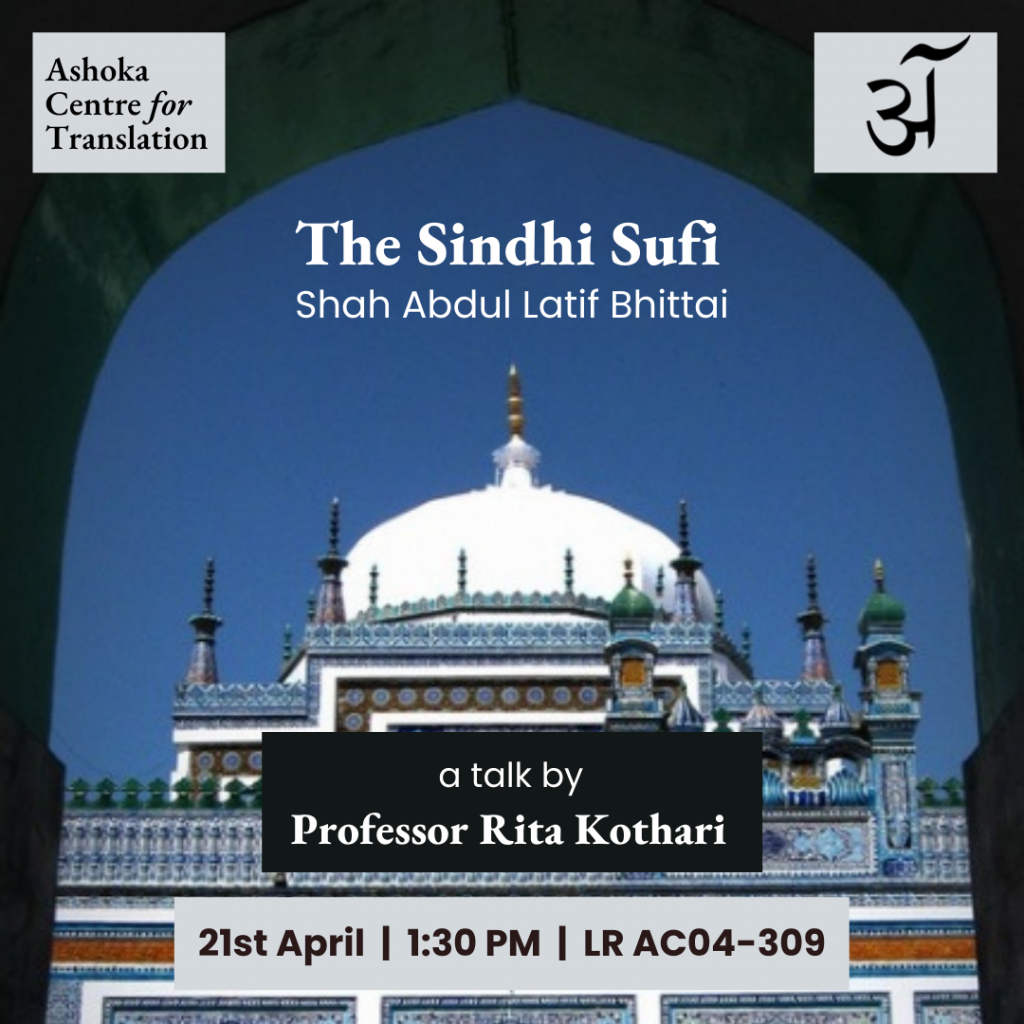
The Sindhi Sufi: Shah Abdul Latif Bhittai
Professor Rita Kothari talked about Shah Abdul Latif, the wondrous Sindhi Sufi, and his Risalo, a highly unusual document quoted by almost every Sindhi in the world — on occasions ranging from the state of nations to cattle, betrayal in love, and the soul’s longing for the beloved. The talk revolved around the stories he tells of Sasui Punhu and Umar Marui.
The echo and the call – it’s all the same
Unravel the mysterious speech and you’ll know
They were always one; you heard them as two.
– Shah Abdul Latif (tr. Rita Kothari)
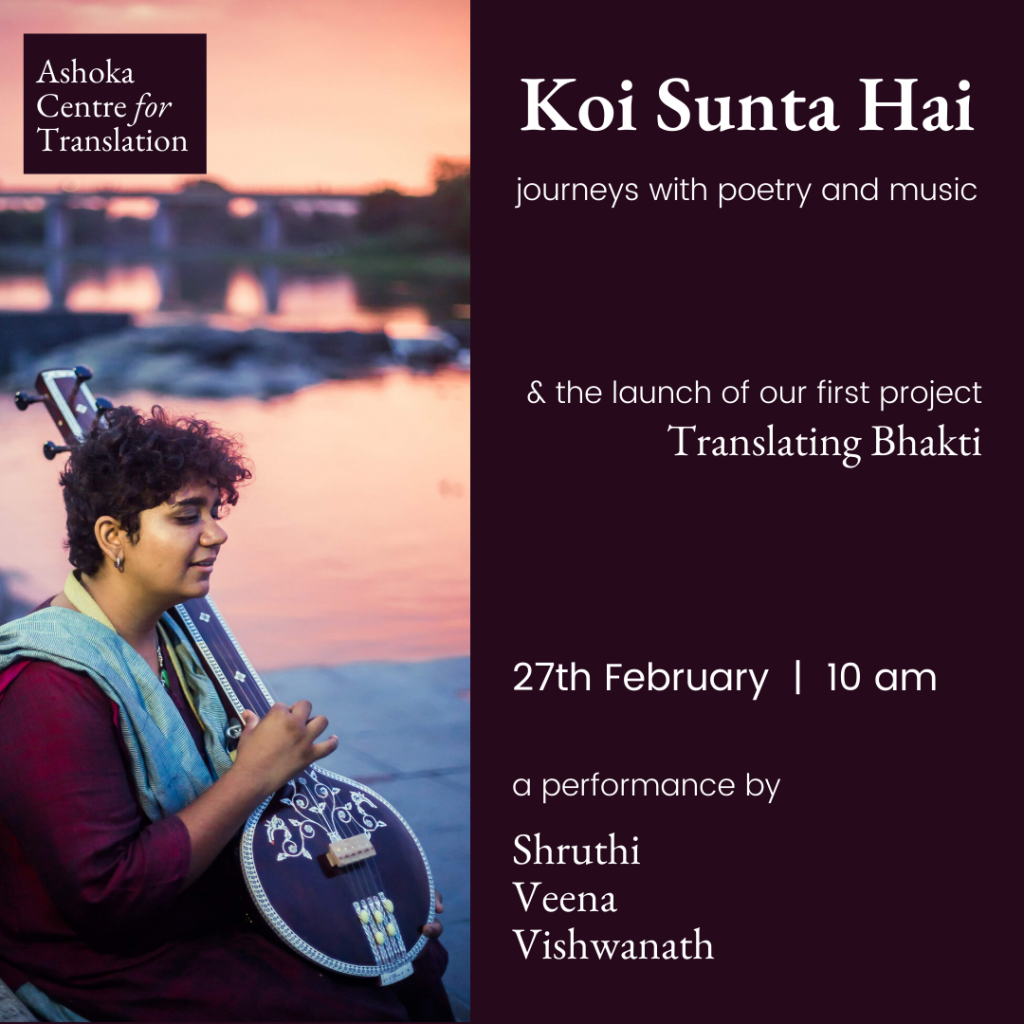
Koi Sunta Hai: Journeys with Poetry and Music
To mark the formal launch of our project, Translating Bhakti, the singer, song catcher, and educator-curator Shruthi Veena Vishwanath took us on a scintillating journey with Bhakti poetry and music.
I needed to translate the poets that I sang in my own way, fully embracing my identities as a woman, and an intersectional feminist, interested in social justice and bringing out the women’s voices in what I believed was the way they might have spoken them in English.
– Shruthi Veena Vishwanath, The ant swallowed the sun
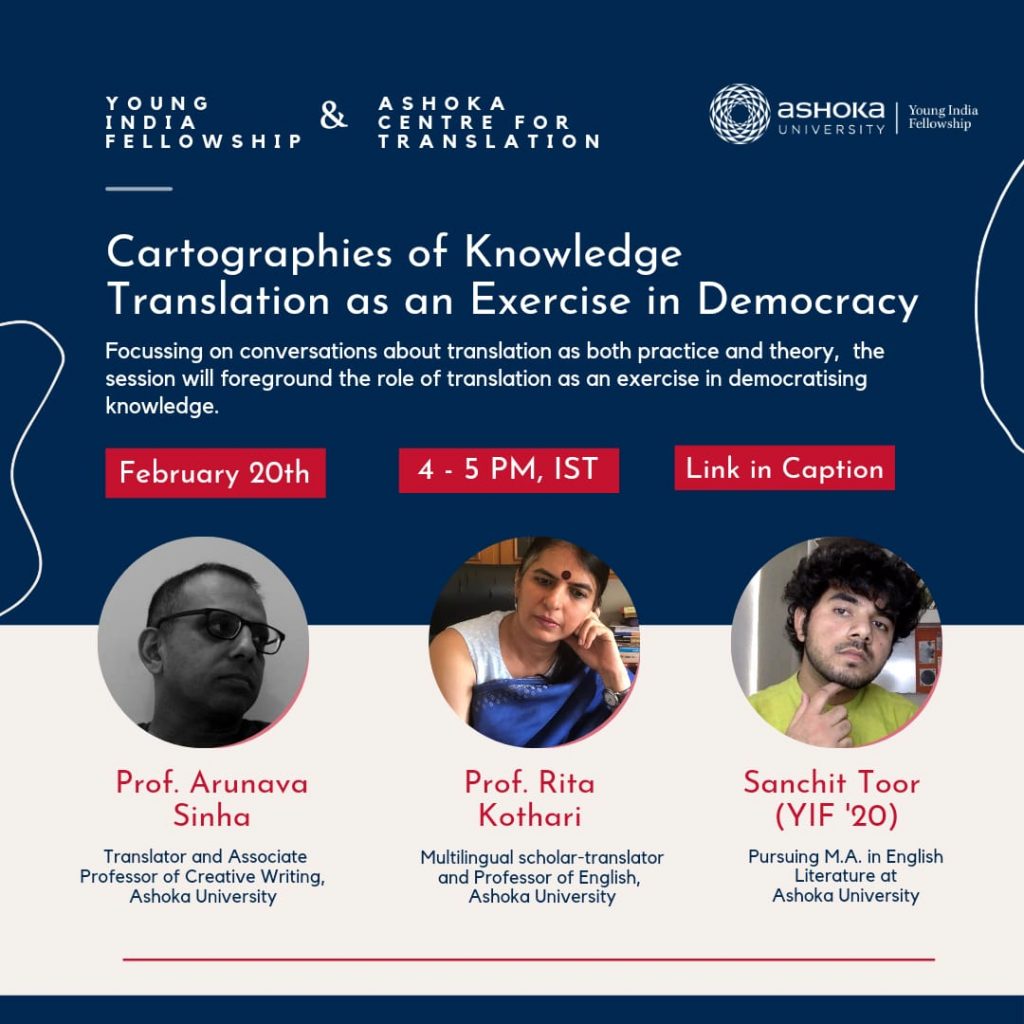
Cartographies of Knowledge
Professor Arunava Sinha and Professor Rita Kothari traversed the landscapes of literature and their life experiences, especially their coming to translation as practitioners and teachers.
This session, moderated by Sanchit Toor, brought out the role of translation as an exercise in democratizing knowledge.
Translation refuses the arrogance of being the first, the original. It says, ‘I will listen to you, in your language, on your terms.’ It is an ethical way of being.
– Professor Rita Kothari
translation in the news

The Best South Asian Novels in Translation
The writer and translator Jenny Bhatt selects five key works of South Asian literature, all historical novels available in English translation, that showcase the richness and diversity of the region’s lesser-known languages (read more)
from FIVEBOOKS
